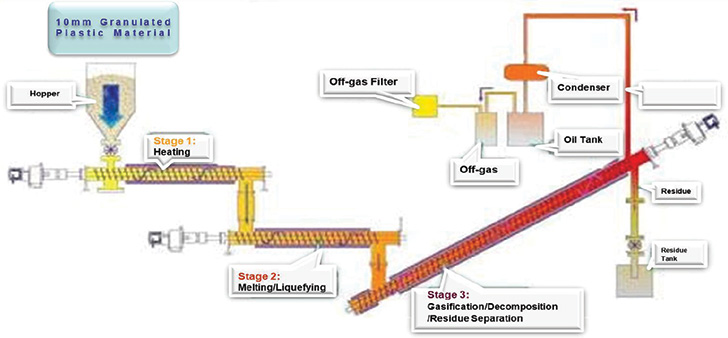The OGM Interactive Edition - Summer 2023 - Read Now!
View Past IssuesThe “great pacific garbage patch” is a catchy phrase that attracts global attention. Technically, it is not true; there is no island of trash, but metaphorically it is perfect. Plastic pollution is recognized as the third greatest challenge to a healthy ocean environment behind overfishing and climate change.
The Clean Oceans Project was created in 2008 in response to this problem. We quickly recognized that real results require a multifaceted approach.
Research – People are operating with very little real information.
Education – The research needs to be shared with the world.
Policy Change – Requires informed collective decisions.
Direct Action – We must provide sustainable remediation wherever possible.
In 2008, there were only a couple of research projects and organizations doing educational outreach with the little information available. This was effective enough to inspire global plastic bag bans and packaging awareness, which is in progress, but what can be done about the millions of tons of plastic debris already in our oceans today?
We must first locate sufficient concentrations of plastic to make our trips worthwhile. The next step is to get it out of the water efficiently without harming existing sea life, and then to recycle it into something of value. Reduced into these components, solutions to these questions were created with tools available on the open market.
“The High Seas Ghost Net Project” was a National Oceanic and Atmospheric Administration (NOAA) effort to locate and remove derelict fishing gear before it damaged the reefs of the Northwest Hawaiian Islands National Marine Monument. Their scientists started our journey down the path of location technology with satellite imagery used to find debris concentrations in the open sea.
Simply put, the satellites find boundaries between warm and cool or blue and green water masses, and that will be an area of higher debris aggregation. HSGNP proved that it works!
The second step is to use HF radar to “see” surface water movement in real time to locate debris concentrations. See this in action on the “Bay Currents” app for the iphone.
To find individual debris streams, we look for help from above—balloons with remote sensing can fly connected to the boat for power and control for a week at a time. This is the tool of choice for the Customs and Border patrol’s remote sensing needs along our southern frontier.
Waterborne debris collection is a competitive industry, and there are numerous light-weight options available with small power requirements, allowing solar and wind energy to offset our energy needs for harvesting and propulsion.
There remains the question of what to do with the plastic waste that is collected. One solution is to use equipment from the Blest Company of Japan to convert plastic waste into diesel fuel.
Their electrically-heated units are safer and small enough to carry on board, greatly increasing our efficiency and reducing our carbon footprint by allowing us to refuel at sea, and it also eliminates much of the need to deliver waste to shore facilities.
We believe that a thoughtful program of plastic debris collection and processing can make a major contribution toward solving a significant problem.

ENergy’s Evolucient Systems™ is a proven plastic to oil conversion technology that carries 14 unique, patents. Using an innovative pyrolysis process, it safely eliminates plastic waste, creates hydrocarbon oils and fuels while significantly reducing CO2 emissions.
Did you enjoy this article?